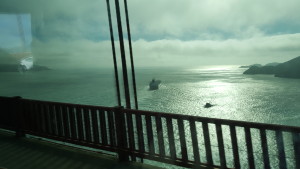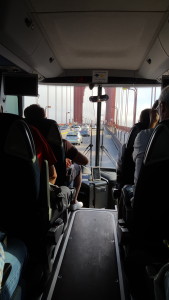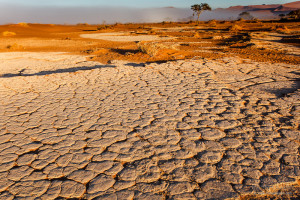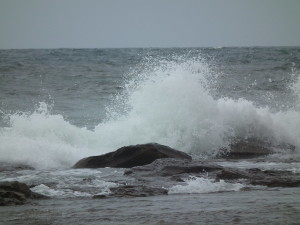This is a quite personal response to my brother’s death. I am posting it here, among my other blogs, because I wish these words as a farewell to Terry, and I had no other public setting in which to deliver them.
I do not remember his birth–there were under two years between us. But I remember him being there, a new and constant presence among my mother’s things-to-do and bright roses on the wall of the back yard in 1949. He lay in his pram and I didn’t know his face but I knew he was somebody and he was there.
He was there when my aunt screamed in panic up the stairs, telling me and my older sister to get out of the bathroom and come down and shelter with the rest of the family under the kitchen table. A firework display in a nearby park resulted in loud explosions, and my mother and aunt were certain Hitler had come back and launched a deadly attack with rockets.
Everything in those days was after-the-war, and that went on all the way through until the sixties. Terry and his whole generation came of age in the sixties.
Before that decade most of our growing up was in the out-of-the-way Isle of Wight. We moved to the island in 1953, taking the ferry from Portsmouth across the shallow strip of water separating it from the English mainland. It was a strange place whose isolation was chosen by the authorities as ideal setting for a maximum security prison, H.M.P. Parkhurst. Our father worked as a Prison (Corrrections) Officer and had taken a job in Parkhurst as a hospital orderly, no doubt attracted by special wage incentives. For five years we shared the situation of those detained at the center of the island. Our only external reference points were the Catholic Church, St. Thomas in Newport, and our primary school, Carisbrooke Convent, with its looming feudal backdrop of a Norman castle.
Terry formed part of a trio, with myself and our younger sister, banded together in a hard, unlikely world. We played around the housing estate where the families of the prison officers lived, or on the clifftop farm where our mother had purchased an ex-army billet hut as unofficial family camp. Terry was a seamless part of that insular childhood experience: pretending to be pirates, climbing trees, following trails, building forts, creating a story saga around our toy plastic Indians, running away from gangs, confronting bullies.
He was intensely loyal. After we first moved and started at our convent primary school–which of course was not the local state school–a bunch of prison kids would steal our caps and rough us up as we walked home from the bus-stop. Deciding on a guerilla tactic we hid in the bushes and jumped on one of the meanest boys who was about our size, pummeling him with our little fists. Our success in dealing with this boy encouraged us to move on to the leader who was head and shoulders above us both. Again we jumped from the bushes, but he handed us a solid pasting and we had to turn and run. My brother took his lumps without flinching. And after that the gang did not bother us again.
Terry’s loyalty was a given, demonstrated time and again throughout his life. But there is passion which cuts deeper even than loyalty. We choose whom we are loyal to; passion chooses its objects for us. The objects of Terry’s passion, who knows? But they were certainly there.
The family moved to Portsmouth at the end of the island sojourn, but in a way we remained our own little island, enclosed in family bounds of church and home. It was only after we started to set out on individual life journeys that the wider world really confronted us, stretching loyalties while provoking passions. One time Terry came to visit me as a young man. It was likely the winter of 1968. I was at Buckden Towers, an historically B-list medieval building, just off the Great North Road, but displaying a noble skyline of castellated walls and three-storied keep. There was a fundraiser underway, with lots of alcohol, disco lights and music. Terry was working at a pig farm at the time, shortly after he had been told to leave the seminary in Ireland and never try a vocation to the priesthood anywhere else. He had a huge Afro haircut, long black greatcoat and a hacking cough. There were flecks of straw in his hair and on his coat, and his conversation was largely about how smart pigs were. It looked like he’d been living with them, just like the proverbial Prodigal Son. After he downed a few drinks he made his way to the roof of the Towers and stood looking out from the shaky battlements, glass in hand. I’d never seen him so dark, and felt it necessary to go back to check on him. What was he staring at as he gazed over the walls into the cold, inky night? I never really knew, but it was desperate and terrible.
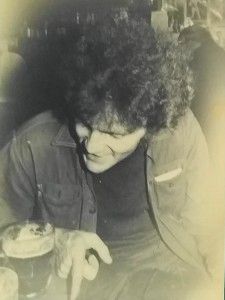
Somehow the Terry of his twenties dealt with his demons. And in so doing he helped me a great deal. More than he really knew. One of the reasons I went to spend time with him in England before he died was to tell him how much he meant to me in my own life. Somewhere in the same period as that dark visit to Buckden, Terry came to see me at another place where I was staying, a house in Oxfordshire attached to a Jesuit teaching institution, Heythrop College. We stayed up late in the community kitchen warmed by the big black Aga stove, and Terry told me about a book he’d read, Catcher in the Rye. We shared Holden Caulfield’s corrosive contempt for phony situations and people. Most of all, I saw my brother Terry standing up to be his own person in a difficult world, in a way that I had yet to manage. I saw that in many ways he was braver and more mature than me.
Others of Salinger’s novels made an ever greater impression on Terry. Those relating the story of the prodigiously talented Glass family, Raise High The Roof Beams, Carpenter and Franny and Zooey, were particularly beloved. At every opportunity he would praise these books as having a near-biblical worth. Why did Terry value so highly a story about a guy named Seymour who did not show up at his own wedding and a few years later committed suicide, yet whose memory and writings remained a spiritual treasure for his family?
In the light of this question, it is impossible not to mention my own wedding in 1986, and the fact that Terry did indeed show up, and did so to protest. He was grateful to be escorted out of the church before the beginning of the service by the best man and ushers, but he waited at the gate until the ceremony was over. It was a bit of a shock to see his ravaged face as I and Linda emerged in the courtyard to the strains of the Wedding March. This was another instance of loyalty–Terry took my mother’s part when she saw my getting married as legally inadmissible (given that I had taken a vow of celibacy in the R.C. church). I know Terry–certainly the Holden Caulfield Terry–did not want to do this, but blood overruled him. (At the same time, in hindsight, I cannot help but find more than a little subversive irony in Terry’s protest: in the end he was the only one of my family actually to show up at the wedding!)
Before all that happened, during the late 70’s, Terry came to work with me at Buckden Towers. He had returned to his studies and got a degree from UMIST, but when he was at a loose end after graduation I asked him to join me at the Towers. That half-millennial pile had emerged as a center of an energetic youth ministry fired by the spiritual renewal taking place in those years. The year he spent at Buckden was a happy time. He had undergone his own progressively deepened spiritual experience and this, together with his genial manner, Woodbine cigarettes and scorching left-wing analysis made him an object of both affection and fascination for the young people who would gather there. For me personally he represented a support I did not find in the religious order to which I belonged. When he left the Towers, that, and a number of other factors, began my own step by step separation from the life I was in. It was a journey which would result in a final break in 1984, and then that rather ill-tempered wedding two years later.
Terry took my mother’s part, but then he saw it as his job to effect a kind of reconciliation. After eight years he managed to get her to agree to meet me. It was an odd encounter but Terry saw it as a duty accomplished, squaring his loyalties both to her and to me. A few years later he also managed to arrange a meeting between my mother and my children–none of whom she had seen. My older two remember it and I am glad they had the chance of at least one physical memory of their grandmother. Terry was very satisfied that he had connected these pieces of the puzzle. Shortly before he died he bought Claddagh rings for each of my kids–“hands across the ocean”–and I know he was pleased that he had preserved that bit of the family heritage somewhat against the odds.
Terry never married. When the Irish say this about an older man they tend to do so with a mixture of sadness and approval. As if there is something quite noble about the solitary state–more often than not a matter of selfless service to said individual’s mother. There were apparently a couple of close brushes with the opposite sex. He told me about a woman from Iceland, and another from the Caribbean who had three children. When informed about the latter our mother remarked along the lines of “So, who would look after me?” And that, as they say, was that. But I never got the feeling these were huge losses for Terry. Whatever his passion was it carried him gracefully along the tracks of bachelorhood. (He once said to me–somewhere to the latter part of my own time in a religious order–“I think I would be better suited to your life, and you would be to mine.”)
So, about that attempt of his to be a priest? When he was eighteen Terry joined a Catholic missionary organization and seminary in Dublin, Ireland, but after a year he was told to leave. He wandered around Dublin for a couple of days, before finally heading back to England. It was following this he took work on the pig farm. To be told not to try anywhere else meant his superiors saw something they deemed a deal-breaker, not simply a poor fit. It’s impossible to know at this distance what that was; and why should I even bother? Well, it seemed Terry left money in his will to this same organization. The end of his life and his dispositions for his estate mirror something right at its outset, and they look like some kind of settling of accounts. My personal opinion is that we can never settle accounts: life is a free gift, and whatever we take from it can only be compensated by more absolutely free giving. And indeed, this could also have been what my brother was doing in a roundabout Zen way! However, why give freely to this organization, when there are so many urgent needs in the world?
Ultimately it is about where your passion lies, and it was perhaps the day of his death that displayed this most poignantly in Terry.
As it turned out I was alone with him. We’d had visits from the Cancer specialist and the Palliative Care doctor; one expected Terry to recover, the other that he still had weeks to live. Before that, about 11.00am, I prayed with him, giving thanks for Terry’s whole life and asking for various blessings on relatives and the world. The room was full of morning sun, Terry was very peaceful, his face and breathing in repose. The one point where he roused himself to an “Amen” was when we prayed for the R.C. church.
The priest came around 2.00. His name was Fr. Sean and he said one word, “Terry,” and my brother came out of his doze as if he’d been touched by an electric probe. He tried to lever himself up on his pillows and at the same time he tore off his oxygen mask. At this point his saturation levels were between 70 and 50 on pure O2 which means it was very dangerous to remove the mask. (Anything less than 90 is low.) We called the nurse and she got the mask back on again. The moment she left he pulled it off once more and this time his eyes rolled up and he went unconscious. I put the mask back on and his eyes returned to focus. I was now standing guard and the priest proceeded with communion and anointing. I extended the mask off his face for him to receive the wafer and sprung it straight back. When it came to the anointing Terry held out his arms rigidly in front of him like someone doing a strength exercise or some kind of parade ground salute. The muscles of his upper arms began to buckle and pop but he held the position with superhuman will-power until the priest had finished putting the oil on his hands. I don’t know why Fr. Sean didn’t tell him to relax and put his hands down on the covers.
The priest left. Shortly after they brought some lunch. Terry had a few mouthfuls and a sip or two of juice. I went out myself to get a drink. When I got back his breathing had changed. Terry died at 3.40. Without any kind of struggle. He just slipped away. His passion done.
Last year, shortly after Terry was first diagnosed with cancer, he sent me this message. “Thankfully I have not been really worried or concerned by the cancer. Do you remember the old hymn or poem that ended, ‘The child of God can fear no ill, his chosen dread no foe, we leave our fate to thee and wait thy bidding when we go; it’s not from chance our comfort springs, Thou are our trust, O king of kings.’ Guess I must actually believe that.”
Flashback. It’s 1979, and Buckden again. It’s the end of the summer and I am having an asthma attack. I was hardly getting episodes at all in those days, and yet somehow I feel this one is dangerous. I ask Terry to sleep in the room next to me, not confident I could get anyone in the community to respond promptly or sympathetically. Sure enough, in the small hours it is a crisis. I knock desperately on the wall and Terry does not need to be asked twice. He at once summons the doctor. The man arrives with his Gladstone, gets out a needle and shoots me with adrenalin. The transformation is immediate, miraculous. I have never quite experienced anything like it, before or since. Free flowing breath and a strong heart, who would not give the skies above for this? I pray that my brother Terry gets some crazy other-than-medical adrenalin in those small hours and remote rooms we call death.

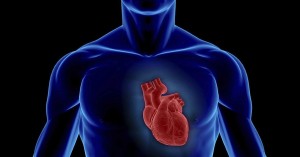


 You have a lion of desire where you thought there was a sweet little puppy, and, more to the point, the lion’s no longer locked up in its cage.
You have a lion of desire where you thought there was a sweet little puppy, and, more to the point, the lion’s no longer locked up in its cage.
